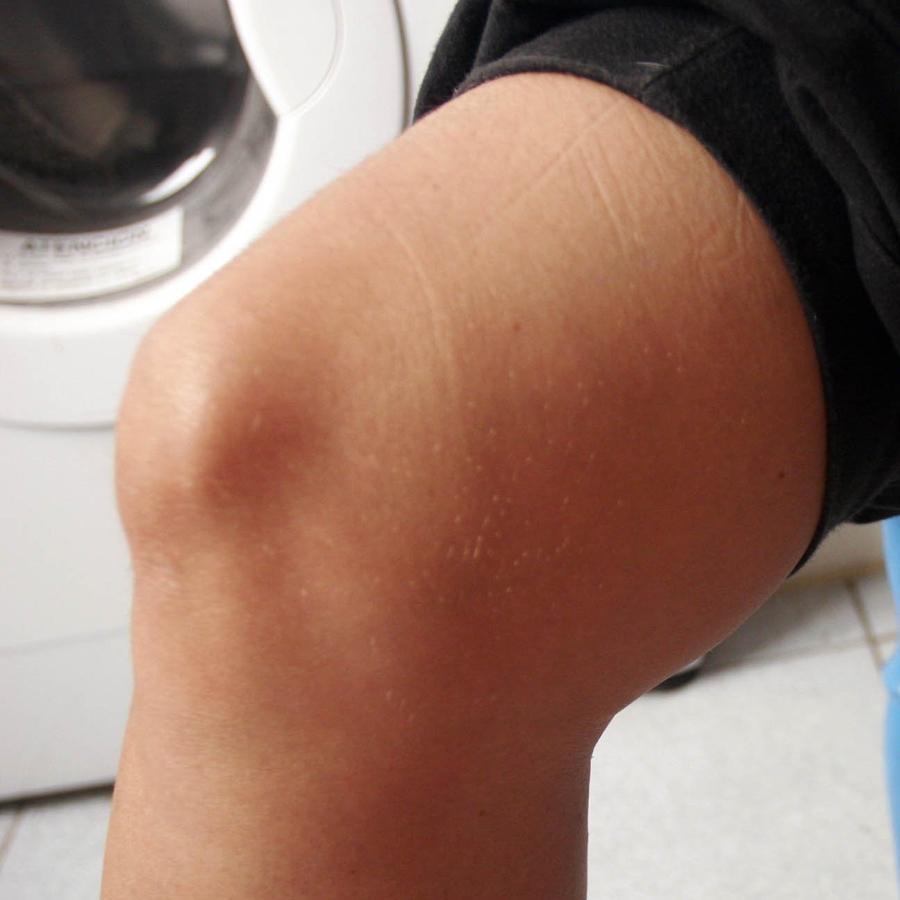1.Mouse-Mice
2.Foct-Feet
3.Child-Childres
4-Wife-Wives
5.Thief-Thieves
6.Shelf-Shelves
7.Life-Lives
8.Lear-Leaves
9-Knife-Kives
10.Copy-Copies
11.Daddy-Daddies
12.Fly-Flies
13.Buzz-Buzzes
14.Cry-Cries
15.Poppy-Poppies
Parts of the boy
*Head
*Eye
*Nose
*Tooth
*Hair
*Neck
*Ear
*Shoulder
*Arm
*Back
*Wrist
*Hand
*Finger
*Armpit
*Belly
*Belly button
*Waist
*Elbow
*Bottom
*Legs
*Knee
*Thigh
*Calf
*Ancle
*Toe
CUADRO DE LOS TIEMPOS
AFFIRMATIVE
|
NEGATIVE
|
INTERROGATIVE
|
Short anwer
Affirmative
|
Short anwer
Negative
|
|
Present Tense
I |
I build a house every year |
I don´t build a house every year |
Do You build a house every year? |
Yes, I do |
No, I don´t |
you / we / they
|
We build a house today
|
We don’t
build a house today
|
Do we
build a house today?
|
Yes , I we
|
No , we don’t
|
she / he / it
|
He builds
a house today
|
He doesn’t build a house today
|
Does he build a house today ?
|
Yes, I he
|
No , he doesn’t
|
Simple past
I/You/she/he/
it/we/they
|
He built a house yesterday
|
He didn’t build a house yerterday
|
Did he build a house yesterday ?
|
Yes , I he
|
No , he didn’t
|
Present Progressive
Or continuos
|
Present Progressive
Or continuos
|
Present Progressive
Or continuos
|
Present Progressive
Or continuos
|
Present Progressive
Or continuos
|
Present Progressive
Or continuos
|
I |
I building
a house now
|
I don’t a building house now
|
Do you building a house now ?
|
Yes , I do
|
No , I don’t
|
she / he / it
|
She is
building a house now
|
She isn’t building a house now
|
Is she building a house now ?
|
¨Yes , I she
|
No , she isn’t
|
you / we / they
|
We are building a house now
|
We aren’t building a house now
|
Are we building a house now ?
|
Yes , I we
|
No , we aren’t
|
WORD
|
MEANING
| ||
1 | Fair of face | 5 | A densely populated urban area, typically smaller than a city and larger than a village, having some local powers of government and a fixed boundary |
| 2 | Woe | 11 | To cause or order (a person or thing) to be taken, directed, or transmitted to another place: to send a letter,she sent the salesman away |
3 | Sabbath day | 8 | To express or manifest emotion, esp mirth or amusement, typically by expelling air from the lungs in short bursts to produce an inarticulate voiced noise, with the mouth open |
| 4 | Blithe | 2 | Sadness |
| 5 | Town | 4 | Not worried, happy |
| 6 | Recipient | 1 | Pretty |
| 7 | Asleep | 13 | To mark (something) with an official impress, seal, or device: to stamp a passport |
8 | Laugh | 9 | to write or print (text) in capital letters or with the first letter of (a word or words) in capital letters |
| 9 | Upper | 7 | in or into a dormant or inactive state |
| 10 | Envelope | 14 | being at birth in a particular social status or other condition as specified |
| 11 | Sender | 3 | It´s usually Sunday |
| 13 | Stamp | 6 | a person who or thing that receives |
14 | Born | 10 | a flat covering of paper, usually rectangular in shape and with a flap that can be folded over and sealed, used to enclose a letter |
| 15 | Capitalize | 9 | higher or highest in relation to physical position, wealth, rank, status |
VOCABULARY
*ZIP : Cremallera
*BELONG:Pertenecer
*SENDERS:Remitentes
*SAID:Dicho
*WARM:Guerra
*RIGHT:Derecho
*MEETING:Reunion
*NOON:Mediodia
*FREE:Libre
*UP:Hasta
*UPPER:Superior
*MIDDIE:Medio
COMPARATIVES AND SUPERLATIVES
Para adjetivos de una sílaba:
| Comparativo | Superlativo |
| añade: "-er" ( | añade: "-est" ( |
2. Para adjetivos de una sílaba que terminan en "e":
| Comparativo | Superlativo |
| añade: "-r" ( | añade: "-st" ( |
3. Para adjetivos de una sílaba que terminan en consonante + vocal + consonante:
| Comparativo | Superlativo |
| añade: consonante + "er" ( | añade: consonante + "-est" ( |
4. Para adjetivos de dos silabas que terminan en "y":
| Comparativo | Superlativo |
| sustituye "y" por: "-ier" ( | sustituye "y" por: "-iest" ( |
5. Para adjetivos de dos o más silabas:
| Comparativo | Superlativo |
| añade: "more"/"less" ( | añade "the most"/"the least": ( |
6. Adjetivos irregulares:
| Adjetivo | Comparativo | Superlativo |
CORRECCIÓN DE LA EVALUACIÓN DE INGLES DE WH QUESTIONS
*They must make their double bed slowly at university for a year
*How must they make their double bed at university for a year
PAST SIMPLE
*They made their double bed slowly at university yesterday
*Where did they make their double bed yesterday ?
PRESENT BE GOING TO
*They are going to make double bed slowly at university next week
*When are they going to make their double bed slowly at university?
PRESENT PERFECT
*They have made their double bed slowly at university since 2014
*How long have they made their double bed at university?
PRESENT TENSE
*They make their double bed slowly at university today ?
*What do they make slowly at university
*Which bed de they make slowly at university today?
CORRECCIÓN DE LA SEGUNDA EVALUACIÓN DE WH QUESTIONS
*Gabo wrote one hundred of magical stories patiently in Colombia and Mexico for decades
*Who wrote one hundred of magical stories patiently in Colombia and Mexico for decades
PRESENT TENSE
*Gabo rites one hundred of magical stories patiently un Colombia and mexico today
*How does Gabo write one hundred of magical stories in Colombia and Mexico today
PAST PREOGRESIVE
*Gabo was writing one hundred of magical stories patiently in Colombia and mexico yesterday
*Where was Gabo writing one hundred of magical stories patiently yesterady ?
PRESENT PERFECT
*Gabo has written one hundred of magical stories patiently in Colombia and Mexico since 2010
*How long has Gabo written one hundred og magical stories patiently un Colombia and Mexico
FUTURE BE GOING TO
*Gabo is going to write one hundred of magical stories patiently in Colombia and Mexico next year
*When is going to Gabo write one hundred og magical stories patiently in Colombia and Mexico
PASSIVE VOICE
*PRESENT TENSE
Act:They draw new designs
Pass:New designs are drawn by them
*PAST TENSE
Act:They drew new designs
Pass:New designs were drawn by them
*PRESENT PROGRESSIVE
Act:They are drawing new designs
Pass:New designs are being drawn by them
*PAST PROGRESSIVE
Act:They were drawing new designs
Pass:New designs were being drawm by them
*PRESENT PERFECT
Act:They have drawm new designs
Pass:New designs have been drawn by them
*PAST PERFECT
Act:They had drawn new designs
Pass:New designs had been drawm by them
*FUTURE WILL
Act:They will draw new designs
Pass:New designs will be drawn by them
*BE GOING TO
Act:They are going to draw new designs
Pass:New designs are going to be drawn by them
*CAN
Act:They can draw new designs
Pass:New designs car can be drawn by them
*They must make their double bed slowly at university for a year
*How must they make their double bed at university for a year
PAST SIMPLE
*They made their double bed slowly at university yesterday
*Where did they make their double bed yesterday ?
PRESENT BE GOING TO
*They are going to make double bed slowly at university next week
*When are they going to make their double bed slowly at university?
PRESENT PERFECT
*They have made their double bed slowly at university since 2014
*How long have they made their double bed at university?
PRESENT TENSE
*They make their double bed slowly at university today ?
*What do they make slowly at university
*Which bed de they make slowly at university today?
CORRECCIÓN DE LA SEGUNDA EVALUACIÓN DE WH QUESTIONS
*Gabo wrote one hundred of magical stories patiently in Colombia and Mexico for decades
*Who wrote one hundred of magical stories patiently in Colombia and Mexico for decades
PRESENT TENSE
*Gabo rites one hundred of magical stories patiently un Colombia and mexico today
*How does Gabo write one hundred of magical stories in Colombia and Mexico today
PAST PREOGRESIVE
*Gabo was writing one hundred of magical stories patiently in Colombia and mexico yesterday
*Where was Gabo writing one hundred of magical stories patiently yesterady ?
PRESENT PERFECT
*Gabo has written one hundred of magical stories patiently in Colombia and Mexico since 2010
*How long has Gabo written one hundred og magical stories patiently un Colombia and Mexico
FUTURE BE GOING TO
*Gabo is going to write one hundred of magical stories patiently in Colombia and Mexico next year
*When is going to Gabo write one hundred og magical stories patiently in Colombia and Mexico
PASSIVE VOICE
*PRESENT TENSE
Act:They draw new designs
Pass:New designs are drawn by them
*PAST TENSE
Act:They drew new designs
Pass:New designs were drawn by them
*PRESENT PROGRESSIVE
Act:They are drawing new designs
Pass:New designs are being drawn by them
*PAST PROGRESSIVE
Act:They were drawing new designs
Pass:New designs were being drawm by them
*PRESENT PERFECT
Act:They have drawm new designs
Pass:New designs have been drawn by them
*PAST PERFECT
Act:They had drawn new designs
Pass:New designs had been drawm by them
*FUTURE WILL
Act:They will draw new designs
Pass:New designs will be drawn by them
*BE GOING TO
Act:They are going to draw new designs
Pass:New designs are going to be drawn by them
*CAN
Act:They can draw new designs
Pass:New designs car can be drawn by them

















































No hay comentarios:
Publicar un comentario